As a runner, you’ve probably heard of the term “racing weight”, or the concept that we all have an ideal weight where we perform our best. You’ve probably also fallen into the trap of assuming that “racing weight” means you need to be lighter. I’m here to help you avoid that trap.
As with many myths, there is SOME truth to the statement that being a lighter runner will help you run faster. Physics does tell us that it takes more energy to move more weight, especially uphill. However, there are a few flaws with taking this as an absolute statement:
- The type of weight matters. If you have strong, muscular legs, that type of weight will help you propel yourself uphill! Losing muscle mass is not usually beneficial to sports performance or metabolism.
- There is a point of diminishing returns with losing weight. Take it too far or do it too quickly and you can lose muscle mass, slow your metabolism, or develop relative energy deficiency in sport (RED-S), which comes with a whole host of physical and emotional problems, as well as decreased sports performance.
- There is a real danger in trying to achieve a lower racing weight if you struggle with disordered eating. The benefit to risk ratio is not worth any (might I add temporary) gain in performance you might see if trying to lose weight triggers disordered eating habits or worse, a full-blown eating disorder.
- The number on the scale doesn’t dictate your performance, your training and nutrition do!
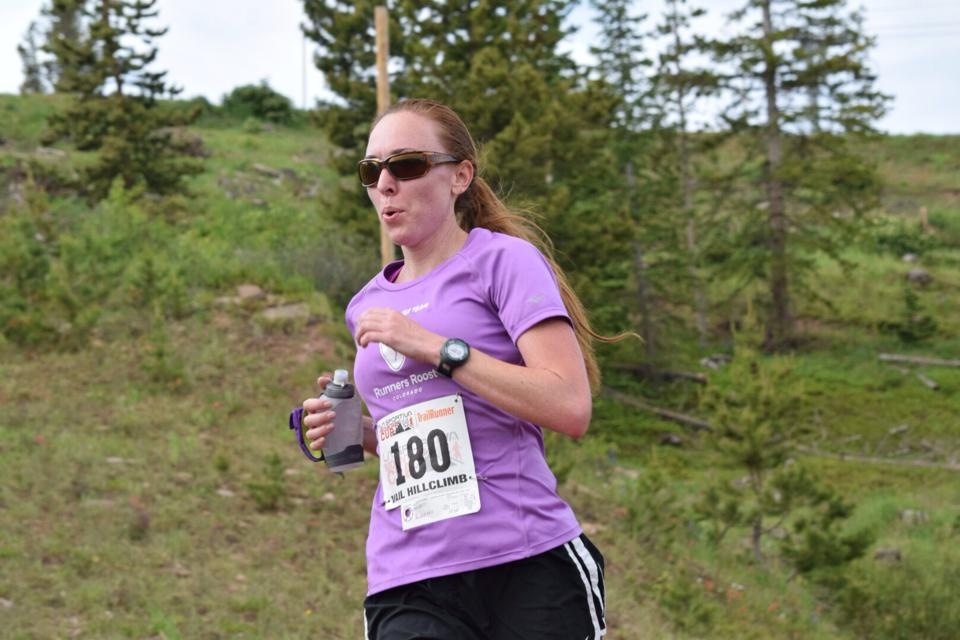
I have to admit, I embarked on my own journey to find my “racing weight” back in 2018. Knowing that my husband and I planned to get pregnant that winter, I wanted to have my best racing season ever that summer. So, starting that January I cut back on my intake to see if getting lighter would help. I didn’t do anything extreme and still allowed sweets in moderation but cut back on how much I would usually have and watched portions in general. It worked! My weight slowly trended down, and I had my best racing season ever, even setting a 9 min PR at the Mt Evans Ascent! But guess what? By the end of summer, I was mentally fatigued from paying so much attention to what I ate. I knew I couldn’t sustain that level of discipline and still enjoy food and running (and life) as much as I wanted. So, satisfied with my racing season, I quit focusing so much on food, gained a bit back, and found my happy medium. As a dietitian with knowledge in sports performance and disordered eating, I felt safe and comfortable doing this whole nutrition experiment on myself, but for someone without that background it could be a lot harder, or even dangerous.
Is nutrition important for sports performance? Yes! But it’s important to find the balance of eating for performance without being too rigid or sacrificing the enjoyment component of food and eating, or the enjoyment of running itself. Ask yourself, is what it takes to lose a few pounds and shave off a few minutes’ worth it to you? There is no right or wrong answer here. It depends on YOU. If it’s not worth it, it won’t be sustainable anyway. Another important question to ask is “could it be harmful?” If you have a history of or currently struggle with disordered eating it’s never advised to try and intentionally lose weight.
If you want to lose weight solely because you think you don’t look like the stereotypical runner/cyclist/fill in the blank kind of athlete, then stop right there. Athletes come in all shapes and sizes and I am a firm believer of not modifying one’s diet and exercise in order to change how one looks. If your only motivation for weight loss is because you think you “have” to or because you want to look a certain way, then I encourage you to pause. Please, instead consider focusing on appreciating your body for what it can do for you and fueling it appropriately. Losing weight doesn’t help body image as much as you might think. That work has to start on the inside.

Losing weight for health or sports performance is a different motivator, but even that motivation can be taken too far. It’s not always easy to tell when an innocent desire to drop a few pounds to become a better athlete starts to become an unhealthy obsession with weight and food. As an athlete AND an eating disorder professional, I am acutely aware of the issue and believe that I have developed a pretty healthy and moderate approach to the subject. I truly believe that if you focus on training hard and fueling your body best, your weight and body composition will probably change over time, and that would be far better than manipulating your food and body to get a lower number on the scale. So, if you are wanting to find your racing weight, might I suggest focusing on balanced daily nutrition and appropriately fueled workouts instead of focusing on a random number on the scale? Here’s what I DO recommend:
- Don’t count calories– Just because you meet your body’s caloric needs doesn’t mean you are eating the right foods or getting the nutrients your body needs. You could meet your daily caloric needs with ice cream and kale if you really wanted to, but it wouldn’t be a well-rounded diet! Also, calorie counting can easily become compulsive, as it puts so much emphasis on hitting numbers instead of listening to your own hunger and fullness cues. Instead of counting calories, try counting servings from the food groups: fruits, vegetables, grains/starches, dairy, proteins, and fats. All the rest, desserts and alcohol for example, would fall into the category of extras and should be consumed in moderation.
- Keep a food journal– But not all the time, especially if you know this tends to become a compulsive “diet” activity for you. Keeping a food journal for a few days will give you a picture of how much you are getting from all of the food groups mentioned above. Once you know your baseline, you can work on eating more from some of the food groups, and possibly less from others. Keeping a food journal can also help you keep tabs on mindless eating and boredom eating.
- Learn about portions– Most people have no concept of portions, and it’s not surprising given the amount of food we are served at some restaurants. For example, a giant plate of pasta does not count as one serving. One grain’s worth of pasta is actually only ½ cup- the size of ½ of a baseball. A typical portion of meat should be the size of the palm of your hand, not a 16 oz steak.
- Focus on what you want to eat more of, not less– The answer will probably be vegetables and fruits, as most Americans don’t meet the minimum recommendations of 5-9 servings/day. I think that it’s mentally more helpful to focus on what you want to eat more of, instead of what you want to eat less of, since telling yourself you can’t have something will likely make you want it more (blame human nature). Plus, I find that when I focus on upping my vegetable or protein intake, for example, I naturally do not have room for, or crave, the less healthy foods I typically like (desserts and wine mmm!).
- Choose whole more often than not– You’ve probably heard that it’s best to shop the perimeter of the grocery store. That’s because that is where most of the whole foods are, like fruits, veggies, meats, dairy, and to some extent whole grains (they are often on the middle aisles). There are plenty of healthful foods that come in packages though, so don’t avoid the inner aisles completely. When buying packaged products aim for ones with few ingredients (i.e. if you are buying brown rice the ingredient list should look like this- ingredients: brown rice). These foods will be more satisfying and provide more nutrition bang for your buck than highly processed foods.
- But don’t ban processed foods either– packaged/convenience items have their place, they just shouldn’t be the bulk of your diet. Use them when you need something quick and easy. Banning them entirely is not necessary, and likely not realistic either!
- Don’t make food rules– Then you fall into the good food, bad food trap and feel like a bad person when you eat a “bad” food. Take the judgment out of eating. There are no “good” foods and “bad” foods. Just foods. Some foods are more productive for sports performance than others, and those foods should be eaten more often.
- Don’t skip meals or snacks– I truly believe breakfast is the most important meal of the day, and studies have consistently shown that breakfast eaters tend to weigh less than breakfast skippers. This could be because skipping breakfast makes you hungrier and more likely to overeat later in the day. Start the day with a well-rounded breakfast and aim to eat meals and snacks every 2-4 hours throughout the day.
- Listen to your body– Try to check in with your hunger. If you are hungry eat. If not, wait until you start to feel some hunger-but not too much. Don’t wait until you are starving, as you will be more likely to reach for high sugar foods or to overeat. Eat until you are satisfied, not stuffed.
- Eat mindfully– Or at least, eat undistracted. It’s easy to eat more than you need when you are distracted by work, social media, TV, etc. Put all that down and try to really enjoy your food and focus on what it actually tastes like. You’ll feel more satisfied this way.
- Plan ahead– Think about what you want to make for your meals and snacks for the week and make sure you have the food on hand. It’s a lot harder to make wise food decisions if you don’t have a plan, especially if you get overly hungry.
- Drink up– Water that is. Thirst is often mistaken for hunger. Make sure you are meeting your fluid needs. Not sure if you are? Hint: your urine should be a very pale yellow and you should be peeing every few hours.
- Know when to use sports nutrition products– Sports drinks, energy gels, and protein shakes are all great when used appropriately, but you don’t need them outside of exercise, and even then you may need more or less than you think.
- Be safe– DO NOT use diet pills, laxatives, diuretics, or any other weight loss aid. Period.
- Don’t weigh yourself too often– Don’t weigh every day if you can help it. Your weight will fluctuate naturally from day to day and seeing those fluctuations may just psych you out. It’s more important to look at overall trends, how your clothes fit, and how you feel on your runs, than daily numbers.
- Monitor your sports performance – Instead of monitoring the scale, how about monitoring your performance? If it’s improving, then that’s the goal right, regardless of what the scale says.



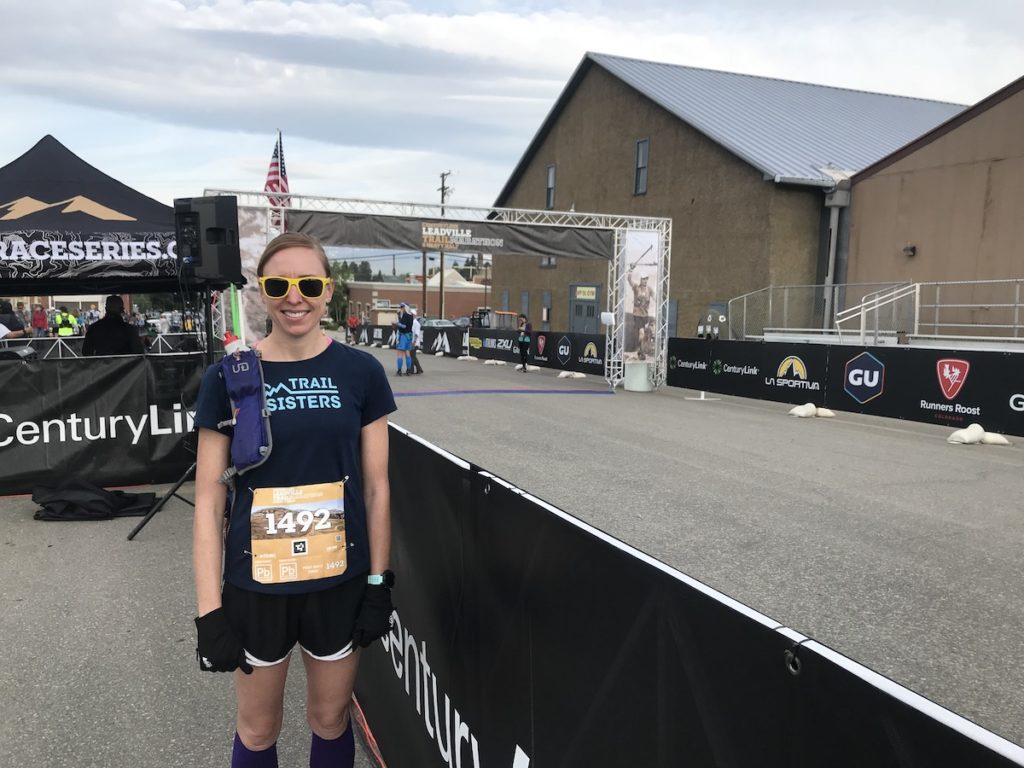

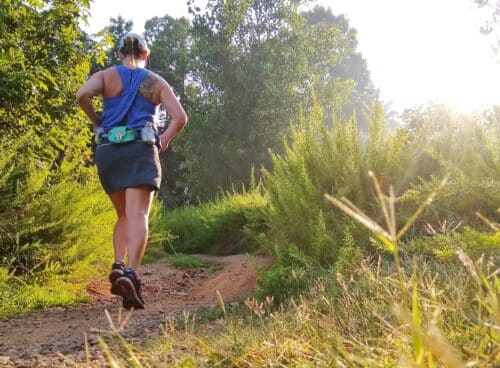


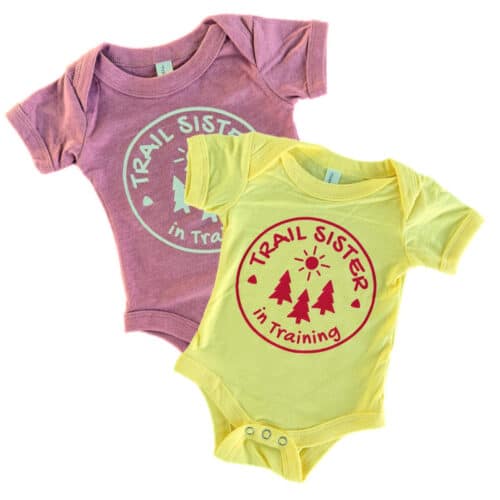

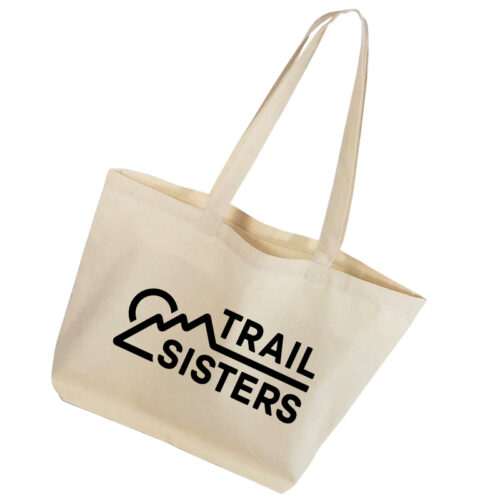
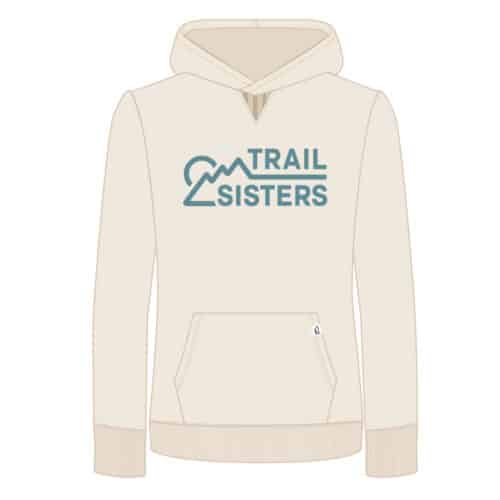
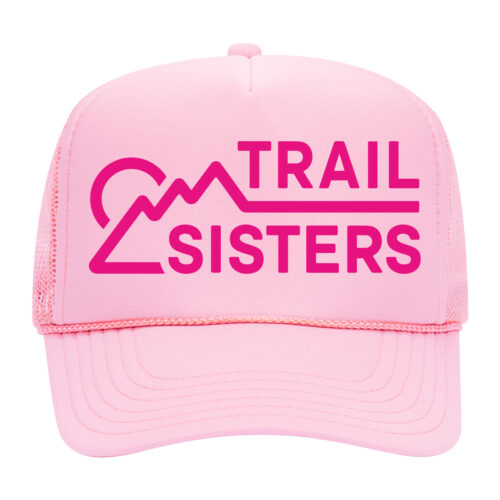
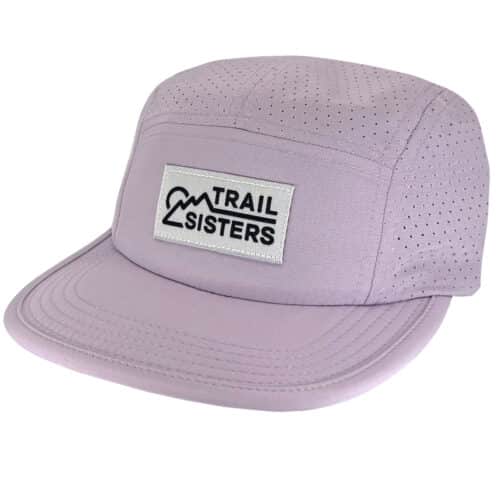


2 Responses
Very helpful. Thank you!
Great read, thanks! I agree, making healthy eating a lifestyle rather than a fad is going to keep you going for the long run!